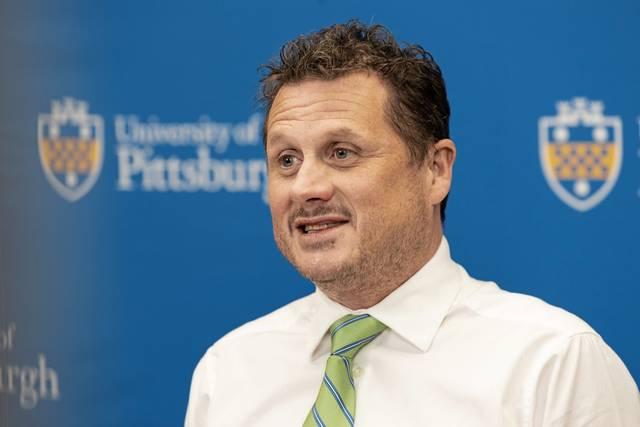While a coronavirus vaccine developed by Pfizer appears promising and highly effective, the interim analysis released Monday only tells part of the story, said Paul Duprex, director of the Center for Vaccine Research at the University of Pittsburgh, which is working on several vaccine candidates.
He said to think of it as waking up in the morning and looking outside at the weather.
“The shades are closed and you take a peek behind the shades. It looks like a bright day, but you don’t know if it’s going to be a perfectly bright sunny day because you haven’t looked at the long-term forecast,” Duprex said. “It looks promising, but there’s much more to happen.”
One of the key takeaways, he said, is that “this is a work in progress and the first might not be the best, but at least we can look at the interim analysis and think, ‘Huh, that might have legs, that might be able to clear the next hurdle,’ and that’s good,” he said. “But we have to balance that with unknowns. It’s always good to look at the interim data and think, ‘That turned out nicely, that looks promising, let’s see where it goes.’”
Secretary of Health Dr. Rachel Levine, Pennsylvania’s top health official, expressed optimism but stressed that there are still safety studies and a review process that need to happen.
“Our job comes when they say that’s done,” she said.
Levine previously laid out the state’s plan for distributing a vaccine, much of will be dictated by federal organizations like the Food and Drug Administration and the Centers for Disease Control and Prevention.
It will be a phased approach, she said, with Phase 1 involving mainly front-line health care workers, those working with particularly vulnerable populations and some who fall within that vulnerable population. Phase 2 will focus on more of the same – more health care workers and those vulnerable to the virus. Phase 3 will see the vaccine distributed to the general public.
How it’s distributed in Phase 3 will depend upon the vaccine or vaccines approved. For example, she said, Pfizer’s vaccine needs to be kept at temperatures around minus-70 degrees centigrade – something most clinics and physicians’ offices could not do.
“We’ve already reached out to hospitals and health systems” to start planning, Levine said.
Pitt vaccine progress
At Pitt, research is being done on a number of different approaches to creating a vaccine against the virus.
“We fill a pipeline. We come up with good ideas and we test them,” he said. “Then we try to see if we can move those on to people who are not like us – people who will make products.”
One of those ideas uses the measles vaccine, which Duprex noted is easily manipulated, as a platform. The idea is to take pieces of the genetic sequence of covid-19 and put it into the measles vaccine. From there, researchers can analyze whether vaccine test subjects begin to create antibodies in response to the vaccine.
Duprex said his team is working with the Serum Institute of India, one of the world’s leading vaccine manufacturers. He said that while work with the company prevents him from saying how far along in the process the potential vaccine is, he could say it is “an active collaboration” that both sides are excited about.
Another approach being tested at Pitt uses messenger-RNA, which is a molecule that carries pieces of DNA code to other parts of the cell. The idea behind using it as a vaccine mechanism involves using genetic material to build a piece of the virus that is then introduced to the body, which then produces an immune response.
It’s the same technique used in Pfizer’s vaccine that has proved successful in its early stages.
Though Pitt’s tries at a RNA-related vaccine are “much further upstream,” they’re still being actively worked on, he said. The Pfizer news could give the researcher working on it a boost, he said, and the “ideas that he’s working on may percolate through the pipeline and turning something that might be Version 2, Version 3 of a vaccine.”
He said the wide array of expertise at Pitt allows the quest for covid vaccines and treatments “to go from soup to nuts” all in the same place.
“What you have in Pittsburgh is the full service — you don’t have to go to another university down the street, in the next state, not even another in the state,” he said. “We can go from soup to nuts … right here.”








